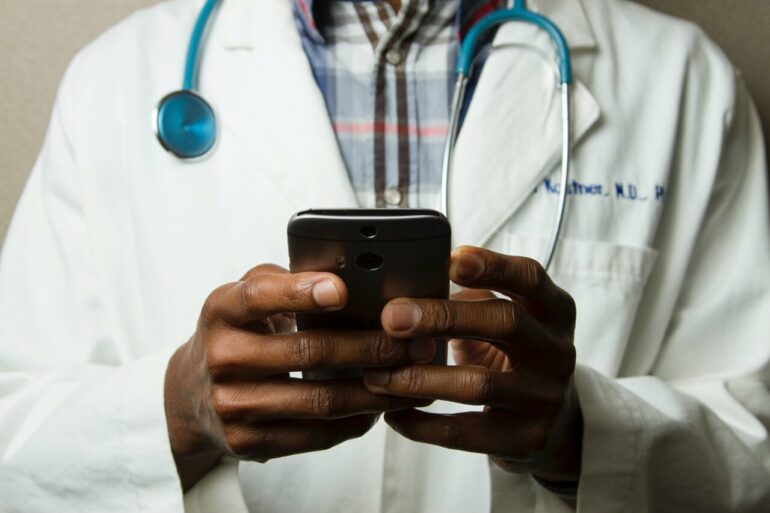Patients perceive relationships formed in group telehealth sessions as surprisingly good, if not better than those in traditional in-person consultations, Monash University-led research has found.
Published in BMJ Quality and Safety, the study found that therapeutic relationships were developed with a perceived positive impact on treatment engagement and patient outcomes.
Clinicians generally believed they needed to find a balance between building relationships and the faithful delivery of telehealth treatments.
The qualitative study interviewed 25 participants (18 patients with shoulder pain and 7 clinicians) about developing therapeutic relationships in group telehealth sessions, with up to three patients per session, over 12 weeks.
In these sessions, clinicians provided patients with education about their condition, treatment advice, and a program of physical exercises.
First author Fernando Sousa, a Ph.D. candidate from Monash University’s School of Primary and Allied Health Care, said he wanted to explore these relationships and address misconceptions that telehealth diminished them.
“We wanted to know what people think about the relationship with their clinicians through video calls,” Mr. Sousa said. “We were curious about how well they could connect with each other, in light of the increased reliance on telehealth services since the COVID-19 pandemic.
“Our research indicates that telehealth doesn’t diminish the clinician-patient relationship; it can be quite the opposite. Some patients even reported that the relationships formed in group-based telehealth sessions were superior to those in-person visits.”
The study’s key findings included:
Patients were pleasantly surprised by the connections formed. One even felt a sense of friendship: “I didn’t think that you could establish a relationship on telehealth or Zoom, but I was really surprised.”
Some patients found online relationships better than in-person. One said, “The relationship was very good. I mean, if you asked me about the relationship with a face-to-face physio, I went to and the relationship via technology, it was much better.”
Patients could bond with other patients and felt that these relationships were essential for their treatment success. One said, “If there was none of that relationship between the four of us, I don’t think it would work.”
Patients viewed positive telehealth relationships as pivotal in their engagement, safety, and satisfaction with treatment. They felt that a good relationship with their clinician motivated them to stick with treatment and made them more comfortable raising concerns early on.
Senior author and Monash School of Primary and Allied Health Care Director Professor Peter Malliaras said the research showed that relatively simple shifts like managing group dynamics, displaying empathy, small talk, and personalized attention could improve therapeutic relationships and patient satisfaction.
“We therefore encourage clinicians to adopt these patient-centered approaches to improve their telehealth consultations, foster patient engagement and potentially also improve outcomes,” Professor Malliaras said.
The research is believed to be the first qualitative study asking questions about patient-clinician relationships developed through group-based telehealth appointments.
Previous studies have investigated general perceptions about telehealth and acknowledged the importance of therapeutic relationships. But they have not delved into how these relationships develop in the online and group context, or their perceived impact on patients and clinicians.
“We believe these findings challenge misconceptions about the limitations of patient-clinician connections in digital consultations while reaffirming the potential of telehealth to deliver high-quality care,” Mr. Sousa said.
“With governments worldwide (e.g., Australia, India, UK, U.S.) announcing significant investments in telehealth strategies to enhance access to care and improve health care outcomes, our research provides timely evidence supporting the justification for such initiatives.”
More information:
Luis Fernando Sousa Filho et al, How therapeutic relationships develop in group-based telehealth and their perceived impact on processes and outcomes of a complex intervention: a qualitative study, BMJ Quality & Safety (2024). DOI: 10.1136/bmjqs-2023-016840
Citation:
Telehealth group sessions can benefit clinician-patient relationships (2024, May 9)



